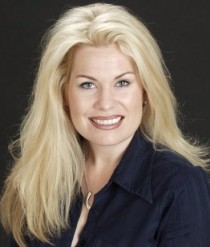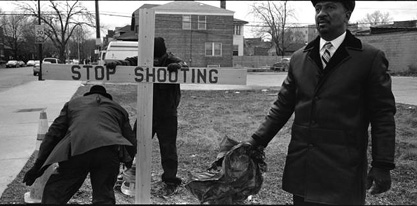Tag: Radio programs
PRI stations to experiment with locally customized news
The competition for midday timeslots on public radio stations is heating up, as Public Radio International and producers of its news programs ...Planet Money launches Kickstarter campaign for T-shirt reporting project
NPR launched a Kickstarter crowdfunding campaign backing a special investigative project by Planet Money, its reporting unit that produces multi-platform economics coverage.Long Island psychic finds radio audience eager for forecasts
Listeners to WPPB in Long Island, N.Y., can listen to Morning Edition or the BBC Newshour if they want to know what’s happening now. But if ...Public radio tattoos make a comeback
The latest package of public radio fundraising premiums allows devout listeners to temporarily brand their passion for their favorite shows on their ...PRI launches crowdfunding campaign to fund global stories, entice new donors
A crowdfunding campaign launched April 15 by Public Radio International seeks $25,000 for a “Global Stories Fund” that will support 11 international ...Austin Music Map: mapping the places where ‘music is made all the time’
The music world of Austin, Texas, is now being shared with a global audience thanks to Austin Music Map, a website developed ...KCRW’s Shearer learned of show’s cancellation after last appearance on air
In a post on his website, actor Harry Shearer describes how he learned about the cancellation of his long-running show on KCRW ...WGBH’s Greater Boston goes nationwide on World Channel with bombing coverage
Tonight’s special edition of Greater Boston from WGBH, focused on the shocking bomb blasts at Monday’s Boston Marathon, will be distributed nationally on the ...From Massachusetts Ave. to NoMa
The April 13 broadcast of Weekend Edition Saturday was the first to originate from NPR's new $201 million headquarters.A slideshow of pictures from the first broadcast at NPR’s new headquarters
WESAT from the new NPR headquarters, a set on Flickr. Current was on hand April 13 when Weekend Edition Saturday launched the first broadcast from ...New metasite showcases Localore projects
The Association of Independents in Radio will launch a metasite April 22 that combines its 10 Localore multimedia projects on a single ...Scarce funding limits public media’s response to gun debate
The mass shootings last year in Colorado, Wisconsin and Connecticut reawakened Americans to recurring tragedies of gun violence and rekindled a national ...American Routes throws shindig for 15th anniversary
Public radio’s American Routes is celebrating its 15th anniversary on the air with a dance and concert in New Orleans and a discount for ...Speedskater Bridie Farrell brings story of abuse to Milwaukee Public Radio
Milwaukee Public Radio host Mitch Teich could have predicted a few outcomes from his decision to take up speedskating — sore muscles, ...Live radio captioning goes nationwide with Latino USA
Radio for the deaf,” a captioning technology developed and refined through an NPR Labs partnership, is moving into mainstream broadcasting with Latino ...







